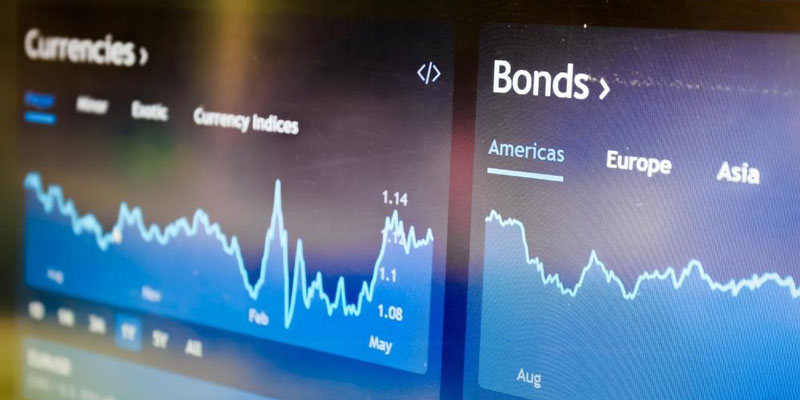Investors may use index funds in mutual funds or ETFs, which are both mutual funds and exchange-traded funds (ETFs). Alternatively, it might be developed by a third-party organization like an investment group or brokerage. As a result, they create a fund that closely mimics the index but does not actively manage the fund. To keep up with the ever-changing index, a fund manager just automatically copies the index's movements. Indexes such as the S&''P 500, Nasdaq 100, and the S&''P 500 are often mentioned in the financial press and used as a shorthand for the overall market's performance. Investing in total index funds might be complicated.
Why Are Index Funds Highly Regarded Investments?
Investing in an index fund is a popular choice for many investors since it provides access to a large range of equities, reduced risk, and cheaper fees. Many investors, particularly novices, prefer index funds over individual stocks because of this.
Rewarding outcomes
The main indices will fluctuate just like any other stock. However, over the long run, indices like the S&''P 500 have shown good returns, with an average yearly return of roughly 10%. Index funds don't produce money each year, but they have, on average, do so over lengthy periods of time.
Widening one's scope
For investors who want quick diversification, index funds are a popular choice. Investors may buy a broad range of businesses with a single investment. Investing in an S&''P 500 index fund gives exposure to hundreds of firms, but investing in the Nasdaq-100 index fund provides exposure to only a few dozen of them,
Reduced risk
Investing in a total index fund is less risky than holding a few individual equities since they are diversified. While this doesn't guarantee that you won't lose money, it does indicate that the index is less volatile than an individual stock.
Affordability
With a minimal expense ratio, index funds may provide these advantages at a low cost. If you have $10,000 invested, you may pay $2.5 to $10 every year. Investing in one of the funds on our list has no cost ratio whatsoever. The cost of index funds is an essential consideration when calculating your overall return.
The Best Index Funds
Fidelity ZERO Large Cap Index (FNILX)

Investment firm Fidelity has launched a zero-expense mutual fund, the FNILX Index mutual fund. Actually, the fund tracks the Fidelity US Big Cap Index rather than the S&''P 500, although this is only for the sake of comparison. The underlying difference is that Fidelity, which values investors, doesn't have to pay a license fee to use the S&''P brand, keeping investor expenses down.
Schwab S&''P 500 Index Fund (SWPPX)
The SWPPX Index Fund has tens of billions of dollars in assets, but investors needn't worry about it since it's one of the best-performing funds on our list. This mutual fund does have a great record since 1997 and is promoted by Charles Schwab, an industry leader. The low-cost ratio of this fund exemplifies Schwab's commitment to creating solutions that benefit investors.
Vanguard Russell 2000 ETF (VTWO)
Smaller publicly listed U.S. firms make up the Russell 2000 Index, which is tracked by Vanguard Russell 2000 ETF (VNRS). A Vanguard fund, this ETF was launched in 2010 and aimed to keep expenses low for investors.
Vanguard Total Stock Market ETF (VTI)
Additionally, Vanguard provides a fund called the Vanguard Total Stock Market ETF, which covers almost all publicly listed equities in the United States. Small, medium and big businesses from a wide range of industries are represented. The fund was established in 2001 when it was first launched. Because Vanguard is the sponsor, you can be certain the event will be inexpensive.
When Should You Invest In Index Funds?

If you're looking to invest in a stock index fund or a broad-based stock fund like the Nasdaq-100, now may be an excellent moment to do so. This is due to the fact that when the economy and business earnings expand, so does the market. Time is the best buddy when it comes to compounding your money, allowing it to earn more and more; time is your best mate. That said, funds with a narrowly concentrated index (such as those in a single sector) might have a long period of bad performance.
As a result, investors need to maintain a long-term perspective in order to weather any short-term volatility. Dollar-cost averaging may help investors minimize their risk by allowing them to contribute money to the market on a regular basis. It's possible to earn profit in the industry over the long term if you maintain a strict investment regimen. Instead of attempting to time the market, investors should focus on diversifying their portfolios.
Bottom Line
Investing in a wide range of companies at a cheap cost while still reaping the advantages of diversification and reduced risk is possible with these top-notch index funds. Because of these advantages, it's no wonder that these funds are one of the biggest available.



